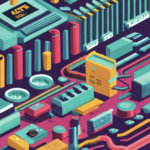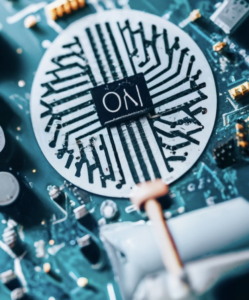OpenAI Considers In-House Chip Manufacturing Amid Global Shortage
Tool TrendAI • October 15, 2023
The post OpenAI Considers In-House Chip Manufacturing Amid Global Shortage first appeared on Tool Trend AI.

ToolTrendAI

OpenAI, a non-profit research laboratory known for its development of ChatGPT, is reportedly considering manufacturing its own chips in order to meet the growing demand for its AI services. The company is currently in talks with potential partners to help it with this endeavor.
The global chip shortage has had a significant impact on the AI industry, as specialized AI chips are essential for training and running large language models like ChatGPT. The shortage has made it difficult and expensive for companies to obtain the chips they need, and it has slowed the development and deployment of new AI applications.
OpenAI’s decision to consider in-house chip manufacturing is a sign of the company’s commitment to AI and its desire to be self-sufficient. It is also a sign of the growing importance of AI chips in the global economy.
There are a number of potential benefits to in-house chip manufacturing for OpenAI. First, it would give the company more control over its supply chain and make it less susceptible to disruptions such as the global chip shortage. Second, it would allow OpenAI to design chips that are specifically tailored to its needs. This could lead to more efficient and powerful AI chips.
Third, in-house chip manufacturing could give OpenAI a competitive advantage in the AI market. By designing and manufacturing its own chips, OpenAI could reduce its costs and improve the performance of its AI products and services.

In-house chip manufacturing is a complex and expensive undertaking. It requires a significant investment in capital and expertise. OpenAI would need to build or acquire a chip fabrication plant, and it would need to hire a team of experienced chip designers and engineers.
In addition, the chip manufacturing industry is highly competitive. OpenAI would be competing against established chipmakers such as Intel, Nvidia, and TSMC. These companies have a significant advantage in terms of experience, resources, and scale.
Overall, OpenAI’s decision to consider in-house chip manufacturing is a bold one. It is a sign of the company’s commitment to AI and its desire to be self-sufficient. However, it is also a challenging undertaking. OpenAI will need to overcome a number of hurdles in order to be successful.
OpenAI’s consideration of in-house chip manufacturing is a sign of the growing importance of AI chips in the global economy. AI chips are essential for training and running large language models, and they are also becoming increasingly important for other AI applications, such as self-driving cars and facial recognition.
If OpenAI is successful in its efforts to manufacture its own chips, it could have a major impact on the AI industry. It could lead to more efficient and powerful AI chips, and it could make AI more accessible to businesses and individuals.
Overall, OpenAI’s decision to consider in-house chip manufacturing is a positive development for the field of AI. It shows that major AI companies are investing in the development of new AI technologies, and it could lead to a new era of innovation in the AI industry.
What do you think are the most important challenges for OpenAI to overcome in order to be successful with in-house chip manufacturing? How do you think OpenAI’s in-house chip manufacturing efforts will impact the AI market?
The post OpenAI Considers In-House Chip Manufacturing Amid Global Shortage first appeared on Tool Trend AI.
Have a question or comment?
Let us know.